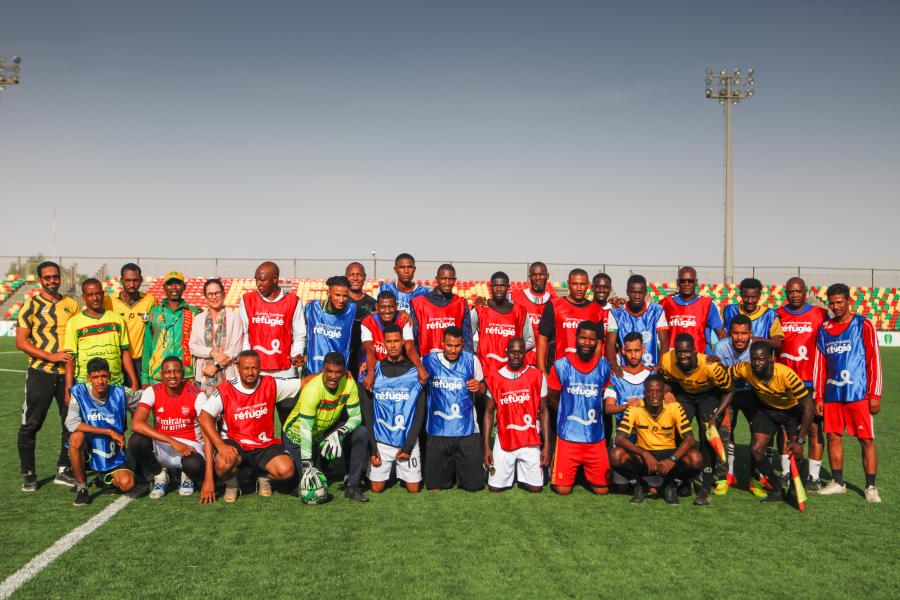With a forecasted refugee increase, UNHCR's multi-year plan focuses on essential needs such as food security, protection, and employment. The strategy aligns with national development goals, emphasizing empowerment and self-reliance for displaced populations. The key initiatives include enhancing documentation, promoting partnerships, and investing in community-driven solutions. Priorities also include addressing environmental resilience and advocating for more resettlement options. The approach aims to mitigate displacement causes, facilitate integration, and prepare refugees for eventual return. Despite challenges, UNHCR emphasizes a collaborative effort with governments and communities to achieve sustainable solutions amidst complex regional dynamics.
Populations
Population types
Note: The "Stateless" category does not include stateless people who are also in other categories, to avoid double counting. The total number of stateless, across all categories, is .
NB: 2025 figures are planning figures.
Source: UNHCR Refugee Data Finder for years until 2022, UNHCR planning figures (COMPASS) otherwise.
Population by country
NB: 2025 figures are planning figures.
Source: UNHCR Refugee Data Finder for years until 2022, UNHCR planning figures (COMPASS) otherwise.
Population by origin
NB: 2025 figures are planning figures.
Source: UNHCR Refugee Data Finder for years until 2022, UNHCR planning figures (COMPASS) otherwise.
Financials
Budget and expenditure trend
Source: 2025 budget was approved by ExCom in October 2024 while the 2024 budget figures include the latest supplementary appeals and are updated on a monthly basis.
Budget by pillar
Budget by objective
Note: The table presents the budget for this operation broken down at the objective level. Resource allocation at the objective level is subject to change during the course of the year as the operational situation evolves and priorities shift. The current budget, reflected in the bottom line of this table, is updated on a monthly basis and is replaced by the final budget at year-end.
Expenditure by Outcome Area
Budget by Impact Area
Source: 2023 budget as approved by the Executive Committee in October 2022.
2022 current budget as approved by the High Commissioner as of October 2022; pending presentation to the ExCom's Standing Committee.
Budget by Outcome and Enabling Areas
Source: 2023 budget as approved by the Executive Committee in October 2022.
2022 current budget as approved by the High Commissioner as of October 2022; pending presentation to the ExCom's Standing Committee.
Budget by Impact Area
Source: 2024 budget and 2023 current budget are taken from the budget document approved by UNHCR's Executive Committee in October 2023.
Budget by Impact Area
Source: 2025 budget was approved by ExCom in October 2024 while the 2024 budget figures include the latest supplementary appeals and are updated on a monthly basis.
Budget by Outcome and Enabling Areas
Budget by Outcome and Enabling Areas
Source: 2025 budget was approved by ExCom in October 2024 while the 2024 budget figures include the latest supplementary appeals and are updated on a monthly basis.
Budget by Impact Area
Budget by Outcome and Enabling Areas
Strategy
Impact Statements
Latest updates
The boundaries and names shown and the designations used on this map do not imply official endorsement or acceptance by the United Nations.
UNHCR GIS data is publicly accessible in the Operational Data Portal






